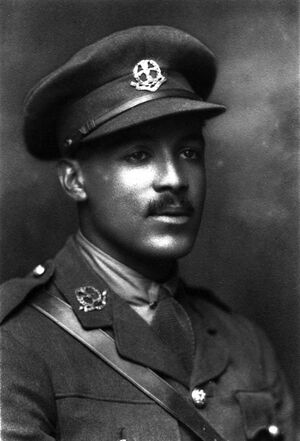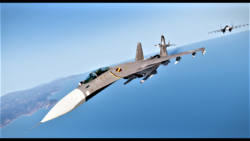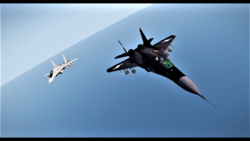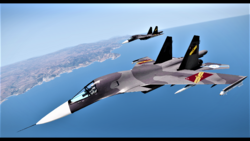Seran Royal Air Force: Difference between revisions
Unified Sera (talk | contribs) No edit summary |
Unified Sera (talk | contribs) mNo edit summary |
||
| (12 intermediate revisions by the same user not shown) | |||
| Line 29: | Line 29: | ||
| title = See list | | title = See list | ||
}} | }} | ||
| anniversaries = April | | anniversaries = April 14th | ||
| decorations = | | decorations = | ||
| battle_honours = | | battle_honours = | ||
| website = <!-- Commanders. --> | | website = <!-- Commanders. -->usraf.us.mil | ||
| commander1 = [[ | | commander1 = [[Kaenan Bullock]] | ||
| commander1_label = Prime Minister / High Commander | | commander1_label = Prime Minister / High Commander | ||
| commander2 = Jabari Mansa ya Mbaku | | commander2 = Jabari Mansa ya Mbaku | ||
| Line 45: | Line 45: | ||
| commander6 = | | commander6 = | ||
| commander6_label = | | commander6_label = | ||
| notable_commanders = <!-- Insignia --> | | notable_commanders = <!-- Insignia --> Rear Admiral Lucius Fox <br/> Major General Caligula | ||
| identification_symbol = | | identification_symbol = | ||
| identification_symbol_label = | | identification_symbol_label = | ||
| Line 62: | Line 62: | ||
}} | }} | ||
'''The United States of Sera Royal Air Force''', Unified Sera Air Force, Royal Air Force, USRAF, and simply the Air Force is the youngest of Sera's established military branches. With an establish date of April 14th, 1956, the US Air Force is markedly younger than other branches of the same kind in other nations. However, despite the age of the branch, the government and military commanders aggressively pursued campaigns to modernize and build the branch in order to catch up with competitors as the landscape of war began to change. | '''The United States of Sera Royal Air Force''', Unified Sera Air Force, Royal Air Force, USRAF, and simply the Air Force is the youngest of Sera's established military branches. With an establish date of April 14th, 1956, the US Air Force is markedly younger than other branches of the same kind in other nations. However, despite the age of the branch, the government and military commanders aggressively pursued campaigns to modernize and build the branch in order to catch up with competitors as the landscape of war began to change. | ||
This aggressive pursuit of modernization with the aid of regional allies allowed the USRAF to build a sizable and powerful air force in a much shorter time frame than what was originally broadcasted when the branch was still being established. As it stands, the USRAF is one of the most advanced in the world with strike capability increased through strategic air force bases abroad and through usage of Unified Sera's two aircraft carriers. | This aggressive pursuit of modernization with the aid of regional allies allowed the USRAF to build a sizable and powerful air force in a much shorter time frame than what was originally broadcasted when the branch was still being established. As it stands, the USRAF is one of the most advanced in the world with strike capability increased through strategic air force bases abroad and through usage of Unified Sera's two aircraft carriers. | ||
=History= | =History= | ||
In the mid-1950s the landscape of warfare changed after the conclusion of the World War. Although Unified Sera sat out the war and did not take part in any direct military confrontations, the Department of War paid close attention to the way the warring powers engaged each other. [[Zuri Tu'Aruc|Queen Zuri Tu'Aruc]] felt uneasy with the future of combat and worried that the U.S. would be left behind if drastic action was not taken to ensure Sera remained competitive. As the monarch during the bloody [[Seran Secessionist War]], Queen Zuri knew the importance of maintaining a powerful and competitive national military. However, she would pass away before any real rpgress could be made in the pursuit of the burgeoning theater of aerial warfare. | |||
Her daughter and now Queen of the United States of Sera [[Zola Tu'Aruc|Queen Zola Tu'Aruc]] took the reigns of the nation after ascending to the throne in August of 1956. She immediately began a campaign of reforming and reshaping the Seran military into a more modern fighting force. The Royal Army was restructured and reorganized to better account for squad-based warfare and combined arms tactics. The Seran Army, although baptized in fire during the Secessionist War 30 years prior, began to bleed experienced leaders and commanders as they began to retire from the military. Queen Zola strove to fill in these gaps in rank by first selecting individuals to oversee the several branches of the Seran military. However, such a massive change to the operation of the national military could not be achieved without Parliament, yet after persuading key members of the legislature and allying with Prime Minister Mkonkwo, Queen Zola had the political capital and backing to begin making changes to the national military. | |||
[[File:80-G-625350_Admiral_Lynde_D._McCormick,_USN_(cropped_portrait).jpg|thumb|left|Rear Admiral Fox was photographed after testifying before Parliament about the necessity of a capable Air Force.]] | |||
With the blessing and assistance of Parliament, Queen Zola began to search for leaders for the military. Parliament went on to identify and recommend individuals based on combat experience, leadership quality, and merit for the the new Marshal Rank that would bestow the officeholder with the power of supreme commander of their branch. This change was meant to free resources for the government and take some pressure off of the Prime Minister who still operated as the Supreme Commander of the entire military. | |||
Four generals would be selected for the positions available for the Valkiri Royal Guard, Royal Army, Royal Navy, and Royal Marines. These dramatic reforms would become known as the "Zola Reforms". | |||
Yet, Queen Zola's focus set squarely upon the idea of establishing an air branch. As a result, Queen Zola tasked the Department of War and the new Board of Defense Ministers to study the extensive use of aircraft during the World War. The prevalence and dominance of air power during the war demonstrated the sheer effectiveness of capable aircraft in the modern landscape of war. Fearing the possibility of being left behind on the battlefield, the Department of War channeled Army two-star General Alexander Caligula and Royal Navy Rear Admiral Lucius Fox to co-found the new branch. | |||
The two began to work together on the creation of the branch. Initially, the two had disagreements about the structure, organization, and purpose of the branch. MajGen Caligula asserted that the Air Force should operate as "the aerial army"; transporting troops and operating to enhance the combat effectiveness of troops on the ground. Rear Admiral Fox disagreed and thought that the most effective use of the Air Force would be by supporting naval operations and protecting vessels. | |||
[[File:GenCal.jpg.jpg|thumb|left|A portrait of Major General Caligula of the Royal Army]] | |||
Eventually the issue would come to a head when the BoDM reprimanded the duo and reminded them of what "they were there for". After their reprimanding, they regrouped and discussed possible compromises for the Air Force. They agreed that the best use of the Air Force would be to simply "do both". They then began to create the training regimen of what would become the first class of airmen and established the first Air Force Training Academy at Fort Black Rock in the Seran heartland. Airmen would be taught survival, marksmanship, swimming, first aid, engineering, and mechanical skills that would enable airmen to survive in whatever environment they found themselves in. Moreover, they rapidly pursued growth plans that saw the USRAF purchasing schematics, tapping scientists from allied nations, recruiting and training Seran pilots, and contracting Seran scientists to begin building, designing, and manufacturing the first aircraft. Of these first prototypes, the most well-known would become the M-1 multirole fighter aircraft that could operate as an air-to-air fighter and naval bomber/escort. Based on [[Timeria|n]] designs, the M-1 became a favorite among the branches' new pilots. The M-1 used dual wing-mounted cannons and dual nose-mounted machine guns alongside commendable turning and acceleration ability to attack ground targets and engage in air-to-air confrontations. The M-1 could also be outfitted with dive-bombs, however at the cost of speed and maneuverability. | |||
The first demonstration of the M-1 and subsequent variants led the Department of War to believe that the best way to move forward would be by investing even more money and manpower into the Royal Air Force. The Department of War offered the role of Marshal of the Royal Air Force to both Major General Caligula and Rear Admiral Fox, however Major General Caligula bowed out before the examinations required for the position and allowed Rear Admiral Fox to become the first Marshal of the Royal Air Force. | The first demonstration of the M-1 and subsequent variants led the Department of War to believe that the best way to move forward would be by investing even more money and manpower into the Royal Air Force. The Department of War offered the role of Marshal of the Royal Air Force to both Major General Caligula and Rear Admiral Fox, however Major General Caligula bowed out before the examinations required for the position and allowed Rear Admiral Fox to become the first Marshal of the Royal Air Force. | ||
The duo who would become known as the "Fathers of the Airforce" and their portraits sit permanently at the entrance of the Air Force wing in the Black Mountain military installation. | |||
{{Template:Seran Armed Forces Sidebar}} | |||
=Structure and Mission= | =Structure and Mission= | ||
There are five core missions of the Royal Air Force that have remained very similar if not the same since its inception in April of 1956, but they have evolved and are now articulated as air superiority, regional-global integrated intelligence, surveillance and reconnaissance, advanced regional mobility, advanced strike capability, and command and control. The purpose of all of these core missions is to provide what the Air Force states as "persistent aerial vigilance". | There are five core missions of the Royal Air Force that have remained very similar if not the same since its inception in April of 1956, but they have evolved and are now articulated as air superiority, regional-global integrated intelligence, surveillance and reconnaissance, advanced regional mobility, advanced strike capability, and command and control. The purpose of all of these core missions is to provide what the Air Force states as "persistent aerial vigilance". | ||
==Mission== | |||
*Preserve the peace and security, and provide for the defense of the sovereign nation, its territories and possessions, and any areas occupied by the Seran people or under the jurisdiction of the [[Articles of Federation]]. | |||
*Support national defense policy | |||
*Implement and execute national objectives as established by the Marshal of the Air Force, Parliament, or Prime Minister | |||
*Defend against any nations or entities that would endanger or threaten the people. | |||
==Royal Air Force Command Structure== | |||
{{flagicon image|SeraForce.png}}Department of the Royal Air Force: Black Mountain, Kado, Unified Sera | |||
{|class="wikitable" | |||
|- | |||
!Major Commands | |||
!Current commander | |||
!Location of headquarters | |||
|- | |||
|Air Superiority Command (ASC) || Gen Mari Keffa || Kente Air Force Base, Takhar, Yobu, Unified Sera | |||
|- | |||
|Special Pilot Education and Training Command (SPETC) || Lt Gen Marius Davis ||Pompeii Air Force Base, Pompeii, Rhodes, Unified Sera | |||
|- | |||
|Royal Air Force Regional Defense Command (RAFRDC) || Gen Jerome Scully || Black Mountain, Kado, Unified Sera | |||
|- | |||
|Royal Air Force Reserve Command (RAFRC) || Lt Gen Jermaine Deli || Stolar Air Force Base, Stolar, Istrus, Unified Sera | |||
|- | |||
|Royal Air Force Special Warfare Command (RAFSWC) || Lt Gen Martzia O'keefe ||Mombasa, Shaka, Unified Sera | |||
|- | |||
|Advanced Mobility and Logistics Command (AMLC) || Gen Jengo Barca || Kaang Air Force Base, Kaang, Sifya, Unified Sera | |||
|} | |||
===Commissioned Officers=== | |||
{| style="border:1px solid #8888aa; background-color:#f7f8ff; padding:5px; font-size:95%; margin: 0px 12px 12px 0px;" | |||
|- align=center | |||
|- bgcolor="#CCCCCC" | |||
!Department of War Designations||O-1||O-2||O-3||O-4||O-5||O-6||O-7||O-8||O-9||O-10||Special grade | |||
|-style="background:#ccc;" "text-align:center;" | |||
!Designation of Paygrade||colspan=2|OF-1<!--The NATO Code for first lieutenant is OF-1, not OF-2. Please DO NOT change-->||OF-2||OF-3||OF-4||OF-5||OF-6||OF-7||OF-8||OF-9||OF-10 | |||
|-style="text-align:center;" | |||
||'''Insignia''' | |||
|| [[File:US-O1 insignia.svg|22px]] | |||
|| [[File:US-O2 insignia.svg|22px]] | |||
|| [[File:US-O3 insignia.svg|60px]] | |||
|| [[File:US-O4 insignia.svg|60px]] | |||
|| [[File:US-O5 insignia.svg|60px]] | |||
|| [[File:US-O6 insignia.svg|70px]] | |||
|| [[File:US-O7 insignia.svg|35px]] | |||
|| [[File:US-O8 insignia.svg|65px]] | |||
|| [[File:US-O9 insignia.svg|100px]] | |||
|| [[File:US-O10 insignia.svg|135px]] | |||
|| [[File:US-O11 insignia.svg|90px]] | |||
|- align=center | |||
||'''Service Dress<br />Uniform Insignia''' | |||
|| [[File:US Air Force O1 shoulderboard.svg|60px]] | |||
|| [[File:US Air Force O2 shoulderboard.svg|60px]] | |||
|| [[File:US Air Force O3 shoulderboard.svg|60px]] | |||
|| [[File:US Air Force O4 shoulderboard.svg|60px]] | |||
|| [[File:US Air Force O5 shoulderboard.svg|60px]] | |||
|| [[File:US Air Force O6 shoulderboard.svg|60px]] | |||
|| [[File:US Air Force O7 shoulderboard.svg|60px]] | |||
|| [[File:US Air Force O8 shoulderboard.svg|60px]] | |||
|| [[File:US Air Force O9 shoulderboard.svg|60px]] | |||
|| [[File:US Air Force O10 shoulderboard.svg|60px]] | |||
|| [[File:US Air Force O11 shoulderboard with seal.svg|60px]] | |||
|- align=center | |||
||'''Title''' | |||
|| Second Lieutenant | |||
|| First Lieutenant | |||
|| Captain | |||
|| Major | |||
|| Lieutenant Colonel | |||
|| Colonel | |||
|| Brigadier General | |||
|| Major General | |||
|| Lieutenant General | |||
|| General | |||
|| Marshal of the Royal Air Force | |||
|- align=center | |||
||'''Abbreviation'''||2nd Lt||1st Lt||Capt||Maj||Lt Col||Col||Brig Gen||Maj Gen||Lt Gen||Gen||MA | |||
|- | |||
|colspan=12| | |||
* No periods are used in actual grade abbreviation, only in press releases to conform with royal military standards. | |||
|} | |||
===Enlisted Royal Airmen=== | |||
{|style="border:1px solid #8888aa; background:#f7f8ff; padding:5px; font-size:95%; margin:0 12px 12px 0;" | |||
|-style="background:#ccc;" | |||
!Department of War Designations||E-1||E-2||E-3||E-4||E-5||E-6||colspan=2|E-7||colspan=2|E-8||colspan=6|E-9 | |||
|-style="text-align:center;" | |||
|- bgcolor="#CCCCCC" | |||
!Designation of Paygrade||OR-1||OR-2||OR-3|||OR-4||OR-5||OR-6||colspan=2|OR-7||colspan=2|OR-8||colspan=6|OR-9 | |||
|- style="text-align:center;" | |||
|'''Insignia''' | |||
|| ''No insignia'' | |||
|| [[File:Placeholder Flag.png|47px]] | |||
|| [[File:Placeholder Flag.png|47px]] | |||
|| [[File:Placeholder Flag.png|47px]] | |||
|| [[File:Placeholder Flag.png|47px]] | |||
|| [[File:Placeholder Flag.png|47px]] | |||
|| [[File:Placeholder Flag.png|44px]] | |||
|| [[File:Placeholder Flag.png|44px]] | |||
|| [[File:Placeholder Flag.png|44px]] | |||
|| [[File:Placeholder Flag.png|44px]] | |||
|| [[File:Placeholder Flag.png|44px]] | |||
|| [[File:Placeholder Flag.png|44px]] | |||
|| [[File:Placeholder Flag.png|44px]] | |||
|- align=center | |||
| '''Title''' | |||
|| Airman Basic | |||
|| Airman | |||
|| Airman First<br />Grade | |||
|| Senior<br />Airman | |||
|| Staff<br />Sergeant | |||
|| Technical<br />Sergeant | |||
|colspan=2| Master<br />Sergeant | |||
|colspan=2| Senior Master<br />Sergeant | |||
|colspan=2| Chief Master<br />Sergeant | |||
|| Command Chief<br />Master Sergeant | |||
|| Chief Master Sergeant<br />of the Air Force | |||
|| Senior Enlisted Advisor<br />to the Marshal | |||
|- align=center | |||
||Abbreviation||AB||Amn||A1G||SrA||SSgt||TSgt||colspan=2|MSgt||colspan=2|SMSgt||colspan=2|CMSgt||CCC/CCM||CMSAF||SEAM | |||
|- | |||
|colspan=15| | |||
|} | |||
=Equipment= | |||
The Royal Air Force fields 1,325 aircraft in its inventory. In large part due to both Parliament and the Monarchy aggressively pursuing operational capacity, range, and effectiveness in the sky, the Royal Air Force has the largest operating budget out of all of the branches. As a result, the RAF has scientifically advanced air capabilities and countermeasures. Of these vehicles, the B-19 "Hammer" is the only aircraft that was not designed to take off or land on one of Sera's two aircraft carriers. It is, however, a long-range capable vehicle and nuclear compatible. The M-35 "Fugitive" is the newest weapon in Sera's arsenal. The "Fugitive" puts a heavy emphasis on stealth capability and therefore does not carry as much weaponry as the M-27 multirole fighter. | |||
As of writing, Unified Sera has a limited drone fleet. The small, almost non-existent drone capacity of the nation is in response to Sera's operational goals. As Sera's recent engagements have been limited to [[Adula]] for the past century, and because most of Sera's military allies are present on the continent, Unified Sera has not invested heavily into the production of drone aircraft. | |||
{| class="wikitable" | |||
|- | |||
! Model/Designation !! Number Built !! Country of Origin || Description || Capacity || Maiden Flight || Image | |||
|- | |||
| M-35 "Fugitive" || 223 || {{flagicon image|SeranFlag.jpeg}}Unified Sera || Single Seat air-to-air carrier-capable fighter aircraft with stealth capabilities and moderate range. || 1 Pilot || March 11th, 2011 || | |||
[[File:M-35.png|250px]] | |||
|- | |||
| M-27 "Fox" || 597 || {{flagicon image|SeranFlag.jpeg}}Unified Sera || Long range, carrier-capable single seat air-to-air and ground attack aircraft || 1 pilot || August 22nd, 2004 || | |||
[[File:M-25.png|250px|frameless]] | |||
|- | |||
| MB-11 "Hellbat" || 493 || {{flagicon image|SeranFlag.jpeg}}Unified Sera ||Long range, carrier capable double seat ground attack aircraft suited for CAS operations || 1 pilot, 1 navigator/weapons operator || December 23rd, 1991 || | |||
[[File:MB-17.png|250px]] | |||
|- | |||
| B-19 "Hammer" || 12 || {{flagicon image|SeranFlag.jpeg}}Unified Sera ||Supersonic, variable-sweep wing heavy strategic bomber || 1 pilot, 1 navigator/weapons operator || June 13th, 1997 || | |||
[[File:Kremlin_Tupolev_Tu-160.jpg|250px]] | |||
|} | |||
{{WIP}} | {{WIP}} | ||
{{Template:UnifiedSera}} | {{Template:UnifiedSera}} | ||
[[Category:Unified Sera]] | [[Category:Unified Sera]] | ||
[[Category:Coalition of Crown Albatross]] | [[Category:Coalition of Crown Albatross]] | ||
[[Category:Military of Unified Sera]] | |||
Latest revision as of 10:03, 2 August 2023
| Seran Royal Air Force | |
|---|---|
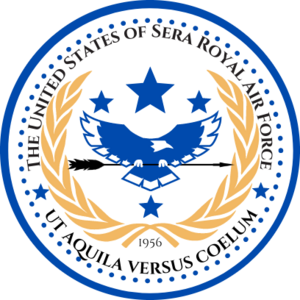 Emblem of the Seran Royal Air Force | |
| Founded | April 14th, 1956 (68 years, 8 months) |
| Country | |
| Type | Air Force |
| Role | Prompt and sustained aerial combat Combined arms operations
Set and sustain the theater for the joint force Aerial Superiority Operations |
| Size | 177,000 Regular Air Force personnel (2021) |
| Part of | |
| Headquarters | Black Mountain |
| Motto(s) | "Ut Aquila Versus Coelum", "Like an eagle toward the sky" |
| Colors | Blue, Sky Blue and White |
| Mascot(s) | Eagle |
| Anniversaries | April 14th |
| Website | usraf.us.mil |
| Commanders | |
| Prime Minister / High Commander | Kaenan Bullock |
| Secretary of War | Jabari Mansa ya Mbaku |
| Director of National Security | Deciumus Marius ya Latinius |
| Marshal of the Royal Air Force | Servius Agrippa ya Latinius |
| Notable commanders | Rear Admiral Lucius Fox Major General Caligula |
The United States of Sera Royal Air Force, Unified Sera Air Force, Royal Air Force, USRAF, and simply the Air Force is the youngest of Sera's established military branches. With an establish date of April 14th, 1956, the US Air Force is markedly younger than other branches of the same kind in other nations. However, despite the age of the branch, the government and military commanders aggressively pursued campaigns to modernize and build the branch in order to catch up with competitors as the landscape of war began to change.
This aggressive pursuit of modernization with the aid of regional allies allowed the USRAF to build a sizable and powerful air force in a much shorter time frame than what was originally broadcasted when the branch was still being established. As it stands, the USRAF is one of the most advanced in the world with strike capability increased through strategic air force bases abroad and through usage of Unified Sera's two aircraft carriers.
History
In the mid-1950s the landscape of warfare changed after the conclusion of the World War. Although Unified Sera sat out the war and did not take part in any direct military confrontations, the Department of War paid close attention to the way the warring powers engaged each other. Queen Zuri Tu'Aruc felt uneasy with the future of combat and worried that the U.S. would be left behind if drastic action was not taken to ensure Sera remained competitive. As the monarch during the bloody Seran Secessionist War, Queen Zuri knew the importance of maintaining a powerful and competitive national military. However, she would pass away before any real rpgress could be made in the pursuit of the burgeoning theater of aerial warfare.
Her daughter and now Queen of the United States of Sera Queen Zola Tu'Aruc took the reigns of the nation after ascending to the throne in August of 1956. She immediately began a campaign of reforming and reshaping the Seran military into a more modern fighting force. The Royal Army was restructured and reorganized to better account for squad-based warfare and combined arms tactics. The Seran Army, although baptized in fire during the Secessionist War 30 years prior, began to bleed experienced leaders and commanders as they began to retire from the military. Queen Zola strove to fill in these gaps in rank by first selecting individuals to oversee the several branches of the Seran military. However, such a massive change to the operation of the national military could not be achieved without Parliament, yet after persuading key members of the legislature and allying with Prime Minister Mkonkwo, Queen Zola had the political capital and backing to begin making changes to the national military.
With the blessing and assistance of Parliament, Queen Zola began to search for leaders for the military. Parliament went on to identify and recommend individuals based on combat experience, leadership quality, and merit for the the new Marshal Rank that would bestow the officeholder with the power of supreme commander of their branch. This change was meant to free resources for the government and take some pressure off of the Prime Minister who still operated as the Supreme Commander of the entire military.
Four generals would be selected for the positions available for the Valkiri Royal Guard, Royal Army, Royal Navy, and Royal Marines. These dramatic reforms would become known as the "Zola Reforms".
Yet, Queen Zola's focus set squarely upon the idea of establishing an air branch. As a result, Queen Zola tasked the Department of War and the new Board of Defense Ministers to study the extensive use of aircraft during the World War. The prevalence and dominance of air power during the war demonstrated the sheer effectiveness of capable aircraft in the modern landscape of war. Fearing the possibility of being left behind on the battlefield, the Department of War channeled Army two-star General Alexander Caligula and Royal Navy Rear Admiral Lucius Fox to co-found the new branch.
The two began to work together on the creation of the branch. Initially, the two had disagreements about the structure, organization, and purpose of the branch. MajGen Caligula asserted that the Air Force should operate as "the aerial army"; transporting troops and operating to enhance the combat effectiveness of troops on the ground. Rear Admiral Fox disagreed and thought that the most effective use of the Air Force would be by supporting naval operations and protecting vessels.
Eventually the issue would come to a head when the BoDM reprimanded the duo and reminded them of what "they were there for". After their reprimanding, they regrouped and discussed possible compromises for the Air Force. They agreed that the best use of the Air Force would be to simply "do both". They then began to create the training regimen of what would become the first class of airmen and established the first Air Force Training Academy at Fort Black Rock in the Seran heartland. Airmen would be taught survival, marksmanship, swimming, first aid, engineering, and mechanical skills that would enable airmen to survive in whatever environment they found themselves in. Moreover, they rapidly pursued growth plans that saw the USRAF purchasing schematics, tapping scientists from allied nations, recruiting and training Seran pilots, and contracting Seran scientists to begin building, designing, and manufacturing the first aircraft. Of these first prototypes, the most well-known would become the M-1 multirole fighter aircraft that could operate as an air-to-air fighter and naval bomber/escort. Based on n designs, the M-1 became a favorite among the branches' new pilots. The M-1 used dual wing-mounted cannons and dual nose-mounted machine guns alongside commendable turning and acceleration ability to attack ground targets and engage in air-to-air confrontations. The M-1 could also be outfitted with dive-bombs, however at the cost of speed and maneuverability.
The first demonstration of the M-1 and subsequent variants led the Department of War to believe that the best way to move forward would be by investing even more money and manpower into the Royal Air Force. The Department of War offered the role of Marshal of the Royal Air Force to both Major General Caligula and Rear Admiral Fox, however Major General Caligula bowed out before the examinations required for the position and allowed Rear Admiral Fox to become the first Marshal of the Royal Air Force.
The duo who would become known as the "Fathers of the Airforce" and their portraits sit permanently at the entrance of the Air Force wing in the Black Mountain military installation.
| United States of Sera Armed Forces |
|---|
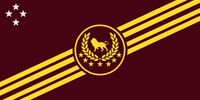 |
| Executive departments |
| Staff |
| Military departments |
| Military service branches |
Structure and Mission
There are five core missions of the Royal Air Force that have remained very similar if not the same since its inception in April of 1956, but they have evolved and are now articulated as air superiority, regional-global integrated intelligence, surveillance and reconnaissance, advanced regional mobility, advanced strike capability, and command and control. The purpose of all of these core missions is to provide what the Air Force states as "persistent aerial vigilance".
Mission
- Preserve the peace and security, and provide for the defense of the sovereign nation, its territories and possessions, and any areas occupied by the Seran people or under the jurisdiction of the Articles of Federation.
- Support national defense policy
- Implement and execute national objectives as established by the Marshal of the Air Force, Parliament, or Prime Minister
- Defend against any nations or entities that would endanger or threaten the people.
Royal Air Force Command Structure
![]() Department of the Royal Air Force: Black Mountain, Kado, Unified Sera
Department of the Royal Air Force: Black Mountain, Kado, Unified Sera
| Major Commands | Current commander | Location of headquarters |
|---|---|---|
| Air Superiority Command (ASC) | Gen Mari Keffa | Kente Air Force Base, Takhar, Yobu, Unified Sera |
| Special Pilot Education and Training Command (SPETC) | Lt Gen Marius Davis | Pompeii Air Force Base, Pompeii, Rhodes, Unified Sera |
| Royal Air Force Regional Defense Command (RAFRDC) | Gen Jerome Scully | Black Mountain, Kado, Unified Sera |
| Royal Air Force Reserve Command (RAFRC) | Lt Gen Jermaine Deli | Stolar Air Force Base, Stolar, Istrus, Unified Sera |
| Royal Air Force Special Warfare Command (RAFSWC) | Lt Gen Martzia O'keefe | Mombasa, Shaka, Unified Sera |
| Advanced Mobility and Logistics Command (AMLC) | Gen Jengo Barca | Kaang Air Force Base, Kaang, Sifya, Unified Sera |
Commissioned Officers
Enlisted Royal Airmen
Equipment
The Royal Air Force fields 1,325 aircraft in its inventory. In large part due to both Parliament and the Monarchy aggressively pursuing operational capacity, range, and effectiveness in the sky, the Royal Air Force has the largest operating budget out of all of the branches. As a result, the RAF has scientifically advanced air capabilities and countermeasures. Of these vehicles, the B-19 "Hammer" is the only aircraft that was not designed to take off or land on one of Sera's two aircraft carriers. It is, however, a long-range capable vehicle and nuclear compatible. The M-35 "Fugitive" is the newest weapon in Sera's arsenal. The "Fugitive" puts a heavy emphasis on stealth capability and therefore does not carry as much weaponry as the M-27 multirole fighter.
As of writing, Unified Sera has a limited drone fleet. The small, almost non-existent drone capacity of the nation is in response to Sera's operational goals. As Sera's recent engagements have been limited to Adula for the past century, and because most of Sera's military allies are present on the continent, Unified Sera has not invested heavily into the production of drone aircraft.
| Model/Designation | Number Built | Country of Origin | Description | Capacity | Maiden Flight | Image |
|---|---|---|---|---|---|---|
| M-35 "Fugitive" | 223 | Single Seat air-to-air carrier-capable fighter aircraft with stealth capabilities and moderate range. | 1 Pilot | March 11th, 2011 | ||
| M-27 "Fox" | 597 | Long range, carrier-capable single seat air-to-air and ground attack aircraft | 1 pilot | August 22nd, 2004 | ||
| MB-11 "Hellbat" | 493 | Long range, carrier capable double seat ground attack aircraft suited for CAS operations | 1 pilot, 1 navigator/weapons operator | December 23rd, 1991 | ||
| B-19 "Hammer" | 12 | Supersonic, variable-sweep wing heavy strategic bomber | 1 pilot, 1 navigator/weapons operator | June 13th, 1997 |
This article is incomplete because it is pending further input from participants, or it is a work-in-progress by one author. Please comment on this article's talk page to share your input, comments and questions. Note: To contribute to this article, you may need to seek help from the author(s) of this page. |

